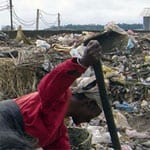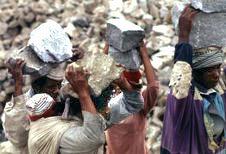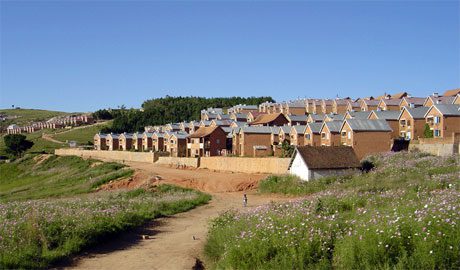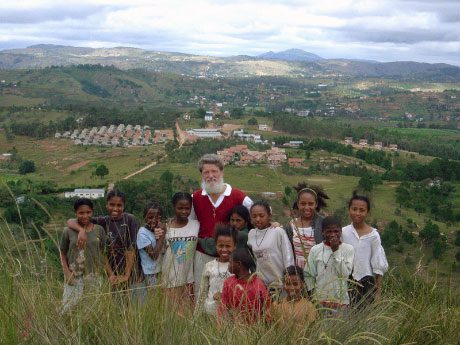 The ninth in the Seeds of Change series: 20 strategies for systemic change described by members of the Vincentian Family’s Commission for Promoting Systemic Change. Patricia Nava writes:
The ninth in the Seeds of Change series: 20 strategies for systemic change described by members of the Vincentian Family’s Commission for Promoting Systemic Change. Patricia Nava writes:
Systemic Change Strategy Eight: Listen carefully and seek to understand the needs and aspirations of the poor, creating an atmosphere of respect and mutual confidence and fostering self-esteem among the people.

 Listening, respect, mutual confidence and self-esteem have been fundamental for Fr. Pedro Opeka, C.M., ever since he arrived in Madagascar as a young Vincentian Missionary, with a firm desire to be faithful to the Vincentian charism and values. When he first arrived in Antananarivo, he couldn’t believe the misery around him, and asked himself: “What is there to do for the hundreds of families that live in outrageous conditions on top of the garbage?
Listening, respect, mutual confidence and self-esteem have been fundamental for Fr. Pedro Opeka, C.M., ever since he arrived in Madagascar as a young Vincentian Missionary, with a firm desire to be faithful to the Vincentian charism and values. When he first arrived in Antananarivo, he couldn’t believe the misery around him, and asked himself: “What is there to do for the hundreds of families that live in outrageous conditions on top of the garbage?
Fr. Pedro revolted against the fact that men, women and children could only survive by eating spoiled food, often rotten and stinky, found in the garbage. The garbage was not only their way of living, the material to build their homes, but also the cause of envy and serious problems among the dwellers in this inhuman place.
Pedro knew he was there to listen, to be attentive to the peoples needs, to become aware of their problems, their aspirations, and the possibilities for living a better life. We became the servants of the poor by listening to them and reacting as quickly as possible, and taking into account the whole human being,” Fr. Pedro says. If we do not succeed in awakening confidence and hope in the needy, for whom and with whom we work, it will be impossible to assist them to be active participants in their own empowerment and in that of their communities. Without the participation of the poor, no Systemic Change can be achieved.
 Aware of this truth, Fr. Pedro started a respectful process in which he accompanied the poor closely, helping them grow in self-esteem. He knew that many persons are incapable of participating in their own promotion, because they recognize neither their own value nor their dignity.
Aware of this truth, Fr. Pedro started a respectful process in which he accompanied the poor closely, helping them grow in self-esteem. He knew that many persons are incapable of participating in their own promotion, because they recognize neither their own value nor their dignity.
Thanks to this conviction and a permanent dialogue process, Fr. Pedro identified some members of the community who were capable of helping to find a solution and of assuming the needed local leadership. Together they discovered that working in a quarry could be a good point of departure. Work soon began, with the people chiseling out boulders for construction. With the participation of the inhabitants, especially women, a process to achieve Systemic Change started. A new association, Akamasoa, (Good Friends) was created and has been very active even since.

With the money obtained, the workers bought rice and building tools, and they were able to build their own lodgings. Today, those first settlements have become real urban communities, with schools, hospitals, workshops, cemeteries, sport fields and all sorts of indispensable services. On Sundays, around five or six thousand persons congregate for praising the Lord for all they have received.
To the question: How did you do it? Father Opeka answers: “One does not stand up and start walking without confidence. Self confidence and confidence in others must be worked at permanently, because no human community can exist and last any other way. This confidence stems from the rules that balance duty and human rights that must be accepted and respected by every one.”

Systemic Change is evident in Akamasoa. As this project has become known worldwide, Akamasoa has spread to seventeen towns. Pedro lets his voice be heard everywhere, denouncing the unjust situations present in the country, especially in the garbage dumps in Antananarivo.
No matter how much lobbying work Fr. Pedro has to do, he is always willing to listen to the sorrows and hopelessness, the joys and aspirations of the poor. He is conscious that listening, respect, mutual confidence and self- esteem are qualities indispensable for achieving Systemic Change. We must work to foster them in order to keep alight the small flame of hope that begins to grow: Blow softly upon it, to make it grow and light up a sense of a new life.
Vincentian Encyclopedia article on Akamosa
Kiwanis: Pater Pedro receives World Service Medal
“Scroll of Honor” for Pedro Opeka from the United Nations Human Settlements Program
This article is part of the Seeds of Change archived at the Vincentian Encyclopedia
Tags: Anti-poverty strategies, Featured, Opeka
